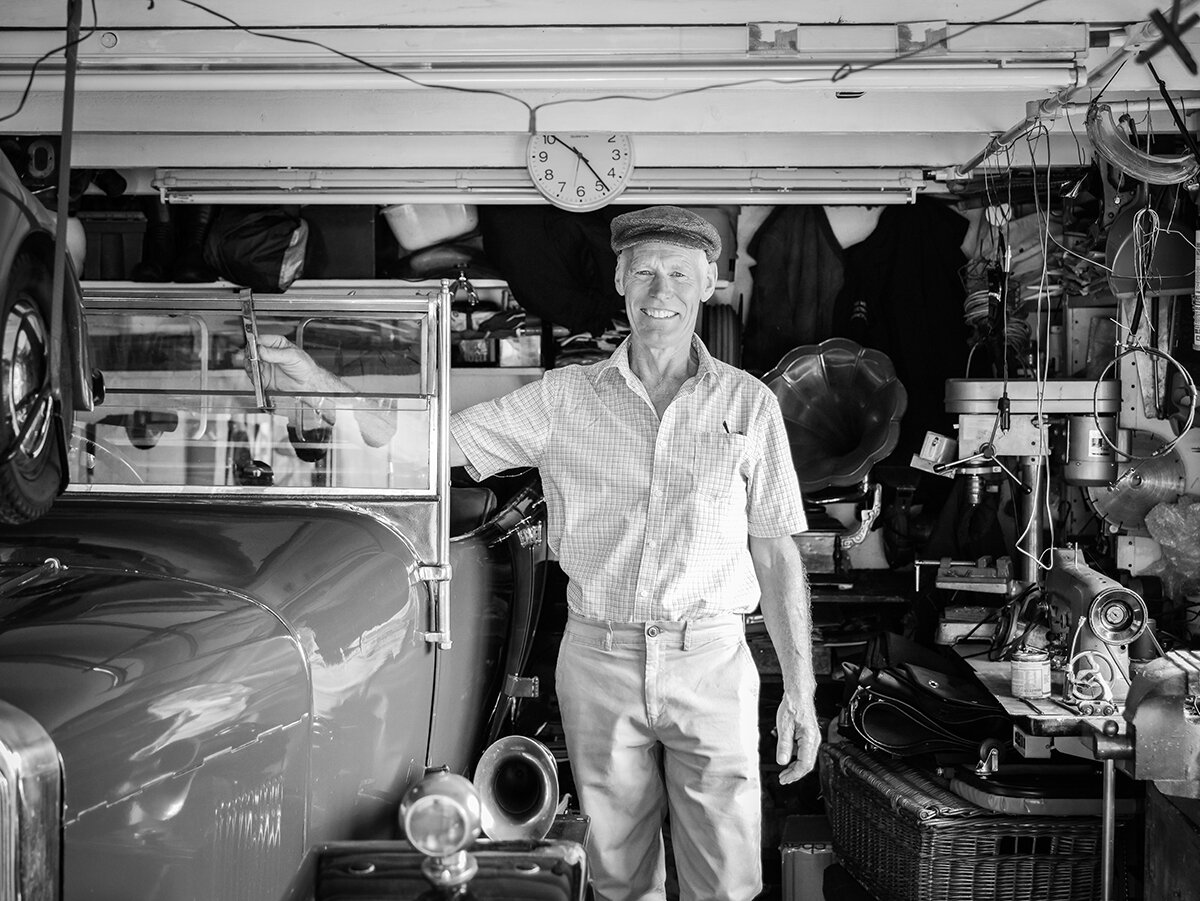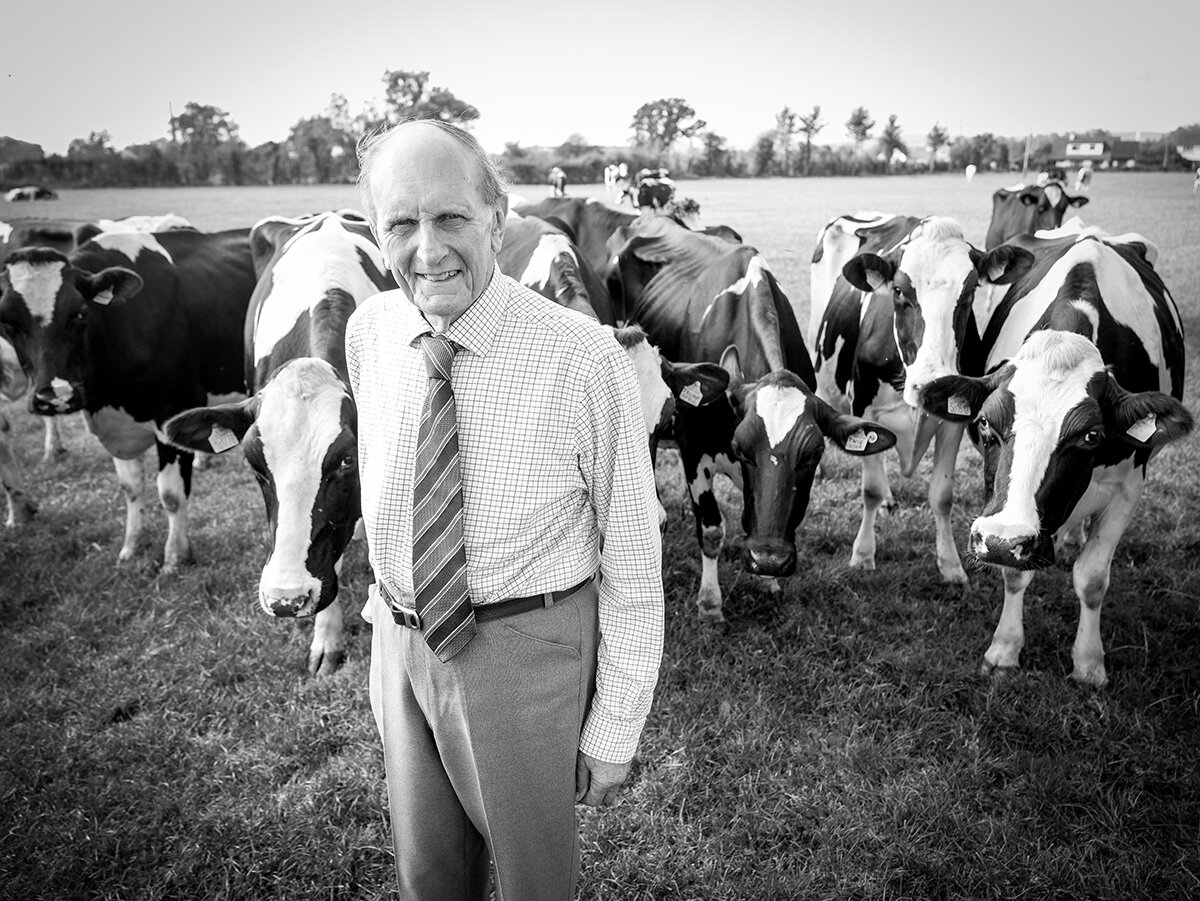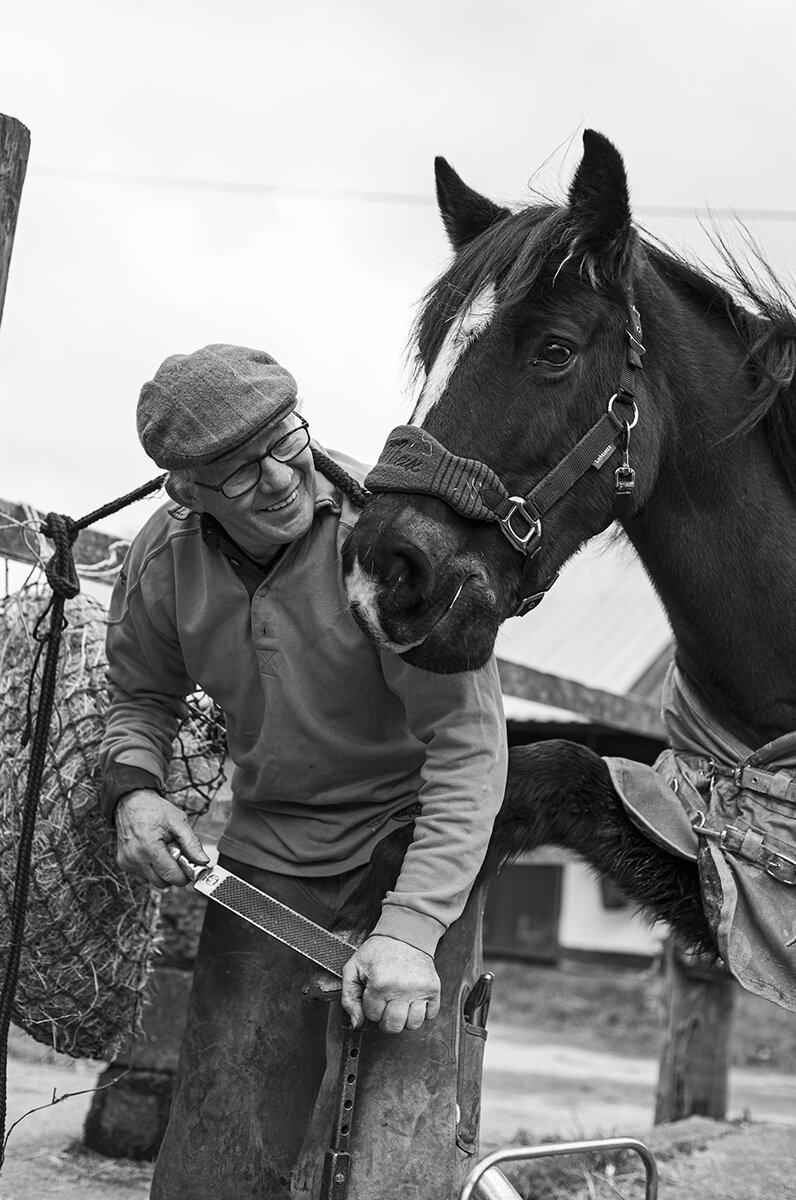- Neville Waters MBE
Neville Waters (Emma Drabble)
People talk of the Levels, but, as third generation farmer Neville Waters explains, the county of Gwent is home to three: “Wentlooge Level, Caldicott Level and, in the middle between the rivers Usk and Ebbw, the Mendalglef.”
Mendalglef, says Neville, has mostly disappeared. “There was a thousand acres or more of the Mendalglef, but the Newport docks covered it up pretty well.”
Farmed since Roman times, these alluvial plains have been enriched by the floodwaters of the Severn. When in 1941 Neville’s father put a piece of his grassland to the plough as part of the war effort the yield was over twice the national average: “I remember looking up at Father’s shoulder and there was the top of the wheat: a fantastic crop,” recalls Neville.
However, like the Dutch polders, most of this land lies below sea level and the price of fertility is the ever-present threat of flooding. “The Romans were the first to record building a sea wall here,” reports Neville. (The National Museum of Wales’ Goldcliff Stone, discovered in 1874, may commemorate the Roman sea wall.) And the battle to contain the sea has continued ever since. “Storms can make a huge difference. A breach, maybe only a few yards, and the water comes in like billy-o, as fast as a horse can run!”

























